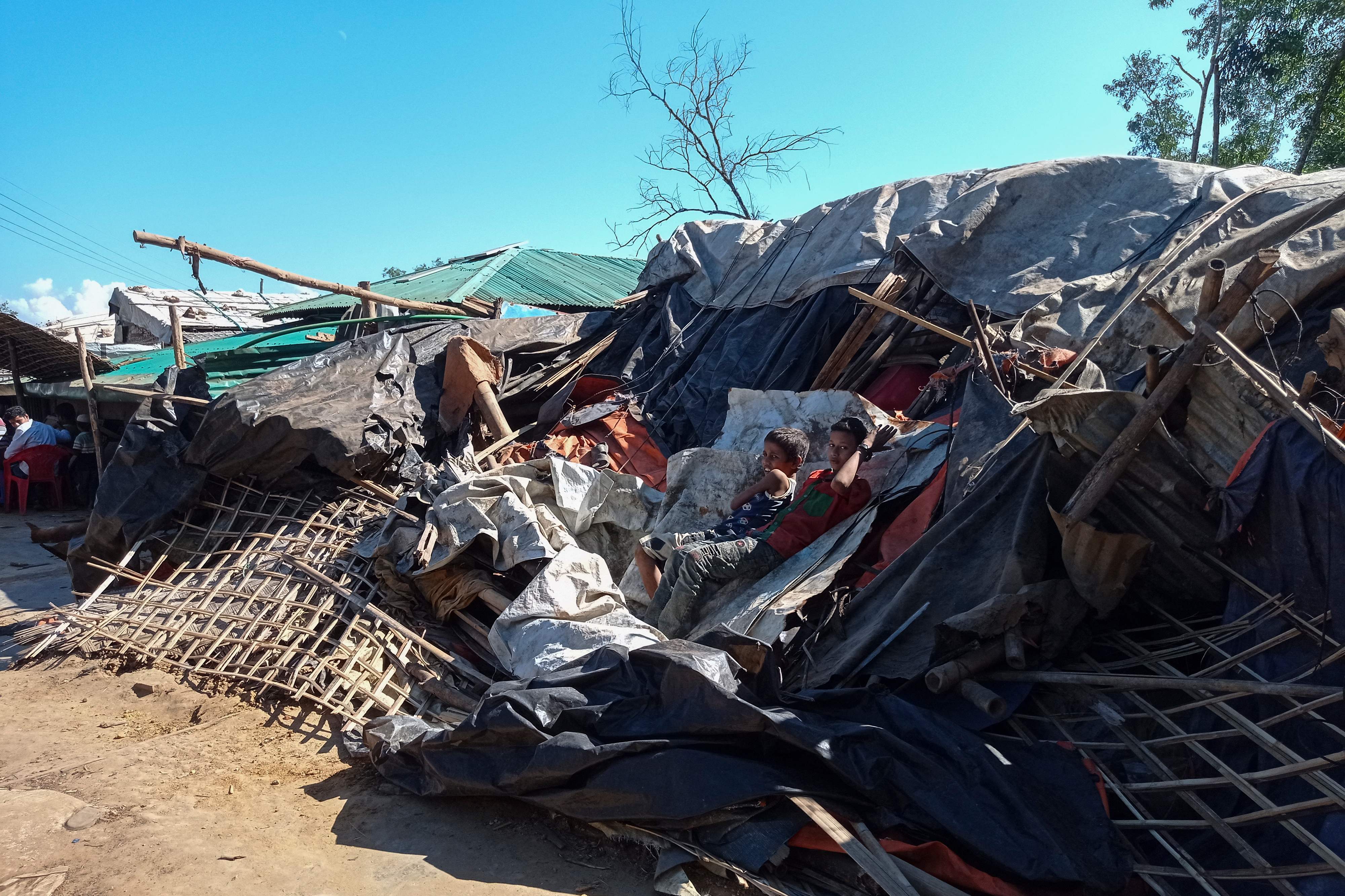Bangladesh destroys 3,000 shops belonging to Rohingya Muslim refugees
Authorities say ‘illegal shops’ were removed as the Rohingyas need shelters being built at same site

Your support helps us to tell the story
From reproductive rights to climate change to Big Tech, The Independent is on the ground when the story is developing. Whether it's investigating the financials of Elon Musk's pro-Trump PAC or producing our latest documentary, 'The A Word', which shines a light on the American women fighting for reproductive rights, we know how important it is to parse out the facts from the messaging.
At such a critical moment in US history, we need reporters on the ground. Your donation allows us to keep sending journalists to speak to both sides of the story.
The Independent is trusted by Americans across the entire political spectrum. And unlike many other quality news outlets, we choose not to lock Americans out of our reporting and analysis with paywalls. We believe quality journalism should be available to everyone, paid for by those who can afford it.
Your support makes all the difference.Authorities in Bangladesh have bulldozed over 3,000 Rohingya shops in the last month calling them “illegal”.
In a statement to AFP, the country’s deputy refugee commissioner Shamsud Douza confirmed the figure and said that the “illegal shops” had been cleared as “the number of Rohingya is increasing”.
“And they need shelters. We are already building sheds on the premises,” he added.
While Mr Douza said that relief groups were ensuring the refugees were still getting daily necessities, members of the Rohingya groups said that the shop owners are struggling to survive.
“Rohingya families are large and the amount of food ration given to them is decreasing. Many families used to rely on the income from the shops,” said Khin Maung, a Rohingya community leader and rights activist.
Bangladesh has received international praise for taking in Rohingyas, a stateless Muslim minority from Myanmar who fled after a military clampdown in 2017 that prompted an international genocide investigation.
At present about 850,000 members of the Rohingya community live in various displacement camps in Bangladesh.
With their makeshift shops demolished, Mr Maung said that the lives of tens of thousands have been affected in these refugee camps.
“That shop was my last hope. How do I run a family now? There is no way out except to die. I am helpless,” said Salim Ullah, whose grocery shop was demolished.
He added that feeding his family of eight would now be a struggle.
Amnesty international officials said that the demolition could leave the Rohingya refugees more vulnerable.
“Demolition of shops and closure of community-led schools … aggravate tension and frustration,” said Saad Hammadi of Amnesty International.
He urged authorities to “protect the rights and dignity of the Rohingya refugees by involving them in the decisions including their right to earn a living”.
In November 2021, the Bangladesh government started relocating hundreds of Rohingya refugees from Chattogram to an island in the Bay of Bengal called Bhashan Char Island.
The move came despite concerns from rights groups over the conditions on the vulnerable low-lying island and that no refugees should be sent forcibly.
Join our commenting forum
Join thought-provoking conversations, follow other Independent readers and see their replies
Comments